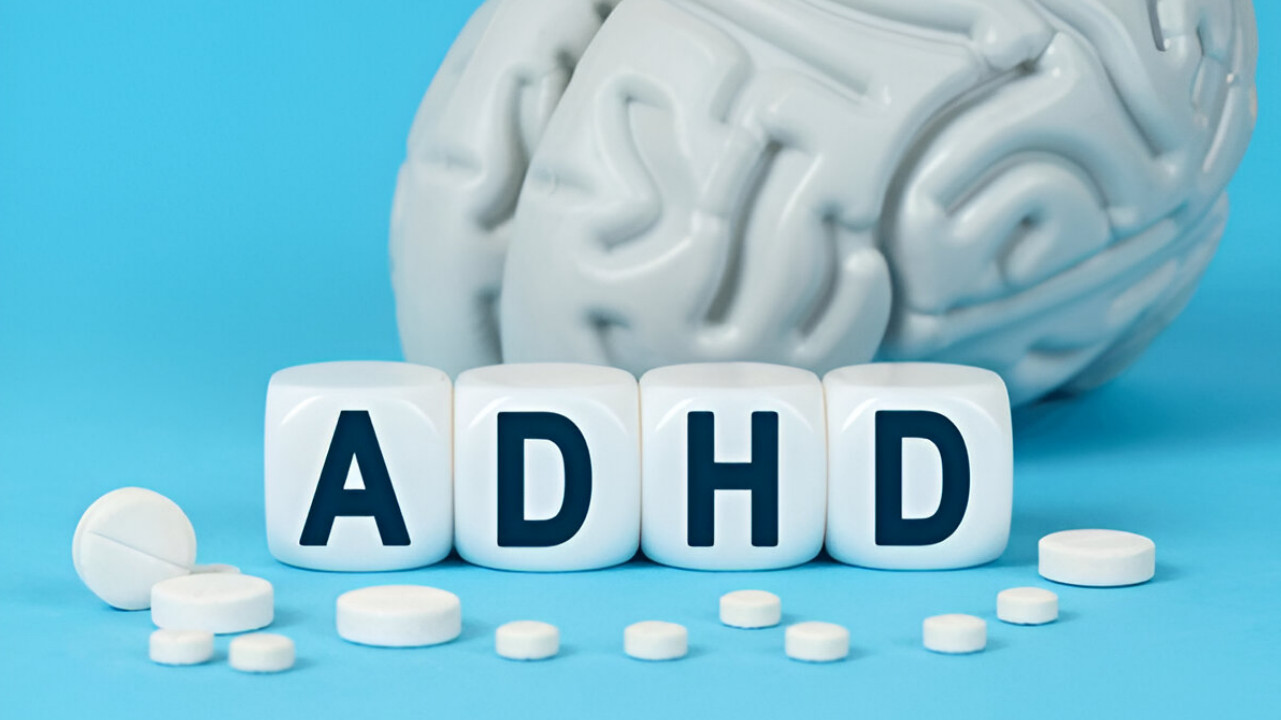Understanding Female ADHD Symptoms
Attention deficit hyperactivity disorder (ADHD) is a common neurodevelopmental disorder characterized by inattention, hyperactivity and impulsivity. While ADHD is often considered a childhood disorder, it frequently persists into adulthood. An estimated 2.5% of adults have ADHD, with roughly equal rates among men and women.
However, ADHD tends to present differently in women than men. Women with ADHD are less likely to be hyperactive and more likely to exhibit inattentiveness. As a result, ADHD in females often goes undiagnosed or is mistaken for other conditions like anxiety or depression.
Taking a screening quiz can help women identify if their symptoms may indicate ADHD. But these informal online quizzes are not definitive diagnoses. If your results suggest the possibility of ADHD, the next step is to speak with your doctor.
Common Symptoms of Female ADHD
Women with ADHD often exhibit the following characteristics:
- Difficulty paying attention and staying focused
- Easily distracted by sights or sounds
- Difficulty organizing tasks and activities
- Forgetfulness and losing track of items
- Difficulty sitting still during sedentary tasks
- Fidgeting and restlessness
- Excessive talking or interrupting conversations
- Difficulty completing tasks and following through
- Lateness and poor time management
- Impulsive behaviors and decision making
However, females with ADHD are less likely to be disruptive or exhibit hyperactivity at the same overt level as males. Women may exhibit subtler signs like restlessness, fidgeting or excessive talking.
Females with ADHD also frequently have symptoms of anxiety or depression. These concurrent conditions can mask the underlying ADHD.
Taking an ADHD Screening Quiz
Online ADHD quizzes allow you to check your symptoms against diagnostic criteria. They evaluate symptoms of inattention, disorganization, hyperactivity and impulsivity.
These quizzes take about 5-10 minutes to complete. You'll rate how often you experience issues like:
- Difficulty concentrating on tasks
- Forgetfulness about daily activities
- Fidgeting or restlessness
- Talking excessively
- Difficulty sitting still
- Impulsive decision making
Based on your responses, the quiz calculates a score that indicates if your symptoms may be consistent with an ADHD diagnosis.
Accuracy and Limitations
Online screening quizzes provide a preliminary assessment, but should not be viewed as an official diagnosis. Their accuracy can vary depending on the questions asked and criteria utilized.
Some key limitations to consider:
- Self-reported responses may not always be accurate
- Quizzes cannot evaluate the full scope and history of symptoms
- Quizzes do not assess for other conditions like anxiety, depression or sleep disorders
- The criteria and interpretation may not align with official diagnostic standards
- Quizzes may utilize limited questions and lack context around symptoms
So while ADHD screening quizzes can be useful for gauging if your symptoms warrant further assessment, they should not be used as a replacement for an evaluation by a qualified mental health professional.
Discussing ADHD Testing with Your Doctor
If an ADHD quiz indicates you may be experiencing symptoms, the next step is to have a comprehensive evaluation. This involves specific diagnostic testing for ADHD by a psychologist, psychiatrist or specialist clinician.
Here are some tips for discussing ADHD testing with your doctor:
Describe your symptoms
Explain the specific issues you experience like forgetfulness, disorganization, difficulty concentrating, restlessness or impulsivity. Provide examples of how these impact your daily functioning.
Note symptom history
Share if you recall having similar struggles in childhood. Drawing this connection can help identify unrecognized ADHD.
Bring your quiz results
Show your doctor your quiz responses and score. This can serve as a discussion starter and screening assessment.
Ask about diagnostic criteria
ADHD is diagnosed based on criteria in the DSM-5 psychiatric manual. Inquire about the specific symptoms and thresholds required for an official diagnosis.
Discuss testing options
Formal ADHD assessments may include cognitive testing, rating scales, clinical interviews and reviewing symptoms from childhood.
Consider other factors
Discuss any anxiety, depression, sleep disorders or learning disabilities as well. Your doctor will want to investigate and rule out these factors.
Inquire about next steps
If diagnosed with ADHD, you can explore treatment options like medication, counselling, lifestyle changes and coping strategies.
ADHD Testing Process and Components
Comprehensive ADHD testing involves multiple components, which may include:
Physical exam
To check for any physical factors that could cause symptoms resembling ADHD.
Clinical interview
Discussing current symptoms, medical history, childhood behavior, family background, school/work functioning and more.
Rating scales
Filling out standardized questionnaires and scales that screen for ADHD symptoms and severity.
Neuropsychological testing
Cognitive tests that evaluate attention, memory, planning, problem-solving and impulse control.
Psychoeducational testing
Assessments to identify any learning disabilities that often co-occur with ADHD.
Third-party input
Gathering observations from family, teachers or co-workers to provide outside perspective.
Reviewing records
Looking at report cards, teacher comments, medical records and other documents for evidence of early symptoms.
This thorough assessment helps confirm if your struggles align with ADHD criteria and rule out other potential explanations for your symptoms.
Diagnosing ADHD in Adults
ADHD involves a persistent pattern of inattention and/or hyperactivity-impulsivity that interferes with functioning. Adults are diagnosed based on the following criteria in the DSM-5 psychiatric manual:
Inattention
Six or more symptoms of inattention for at least 6 months, like:
- Overlooking details and making careless mistakes
- Difficulty sustaining attention in tasks or play
- Not seeming to listen when directly spoken to
- Failing to follow through on instructions
- Difficulty organizing tasks
- Avoiding tasks requiring sustained focus
- Losing things
- Being easily distracted
- Forgetfulness in daily activities
Hyperactivity and Impulsivity
Six or more symptoms of hyperactivity-impulsivity for at least 6 months, such as:
- Fidgeting or tapping hands/feet
- Difficulty remaining seated
- Excessive running or climbing in inappropriate situations
- Difficulty playing quietly
- Often on the go
- Excessive talking
- Blurting out answers before questions finished
- Difficulty waiting or taking turns
- Interrupting or intruding on others
Several of these symptoms must be present before age 12, and they must impair functioning across two or more settings like work and home. There must also be clear evidence the symptoms interfere with or reduce the quality of functioning.
Specifiers
There are three official specifiers used to further classify ADHD:
- Inattentive presentation - Predominantly inattentive symptoms
- Hyperactive/impulsive presentation - Predominantly hyperactive and impulsive symptoms
- Combined presentation - Both inattentive and hyperactive symptoms
A formal diagnostic process examines all these factors. Self-screening quizzes can indicate if your symptoms merit an evaluation, but an accurate clinical diagnosis requires comprehensive testing.
Treatment Options for Adult ADHD
Effective treatment plans may incorporate:
Medication
Stimulant and non-stimulant medications can help reduce ADHD symptoms. Finding the right drug and dosage is an iterative process.
Education
Learning about ADHD fosters self-understanding and techniques to manage challenges.
Adding structure
Using tools like planners, reminder apps and to-do lists compensates for disorganization and forgetfulness.
Counseling
Therapy provides strategies for managing symptoms, improving time management, reducing stress/anxiety and enhancing relationships.
Lifestyle changes
Exercise, proper sleep habits, a healthy diet and meditation can support focus, executive function and impulse control.
Accommodations
Workplace or academic accommodations like extra time for testing, reduced distractions or permission to stand/move can aid performance.
Treatment is tailored to each individuals challenges and needs. An ADHD quiz can indicate if you should seek a formal assessment, which is required for an accurate diagnosis and access to helpful interventions.
FAQs
How do I know if I might have ADHD?
Symptoms of ADHD in women include difficulty concentrating, disorganization, restlessness, excessive talking, impulsivity, and forgetfulness. Take an online screening quiz to see if your symptoms may indicate ADHD.
What happens during an ADHD evaluation?
A full ADHD assessment includes interviews, rating scales, cognitive testing, psychoeducational assessments, and reviewing records to determine if your symptoms meet DSM-5 diagnostic criteria.
Can ADHD develop in adulthood?
Yes, ADHD symptoms frequently continue from childhood into adulthood. But ADHD can also emerge later in life even without being diagnosed in childhood.
What treatments help manage adult ADHD?
Treatment typically involves medication, education, counseling, structure, organization tools, lifestyle changes, and workplace/academic accommodations tailored to the individual's needs.
Do screening quizzes diagnose ADHD?
No, online quizzes only provide a preliminary indication of symptoms. A clinical evaluation by a qualified mental health professional is required for an official ADHD diagnosis.
Disclaimer: This article is for informational purposes only and does not constitute medical advice. Always consult with a healthcare professional before starting any new treatment regimen.
Related Coverage
Wondering about ADHD testing costs? Get the scoop on prices, insurance tips, and affordable options in this friendly, easy-to-read guide!...
If you think you may have ADHD, there are steps to take before meeting with your doctor, like tracking symptoms and reviewing your history. Openly discuss your concerns and learn about diagnostic processes and possible ADHD treatments....
Vyvanse requires a schedule II prescription from a fully licensed psychiatrist. Learn about regulations for obtaining Vyvanse from online doctors vs. seeing one in-person....
Wellbutrin and Vyvanse are sometimes used together to treat adult ADHD. Wellbutrin enhances focus and counteracts stimulant side effects....
Excessive fiddling during meals can indicate issues like ADHD or anxiety in kids. Learn techniques to curb constant fidgeting and toys with for peaceful mealtimes....
If struggling with possible ADHD symptoms, speak honestly with your doctor about medical and non-medical strategies to manage in a healthy, legal way....
While black widow spiders inhabit much of North America, the cold climate of Maine only sparsely supports populations currently. Still climate change impacts may allow expansion....
Understand the similarities and differences between Ritalin and Vyvanse for ADHD treatment. Compare effectiveness, side effects, timing, options and get tips for starting....
Research on chocolate and ADHD is inconclusive. While chocolate has caffeine and sugar, it also has brain-healthy antioxidants. Learn whether chocolate is OK for ADHD....
ADHD time blindness makes time feel elusive. Learn why it happens and find practical strategies to manage your unique relationship with time....






